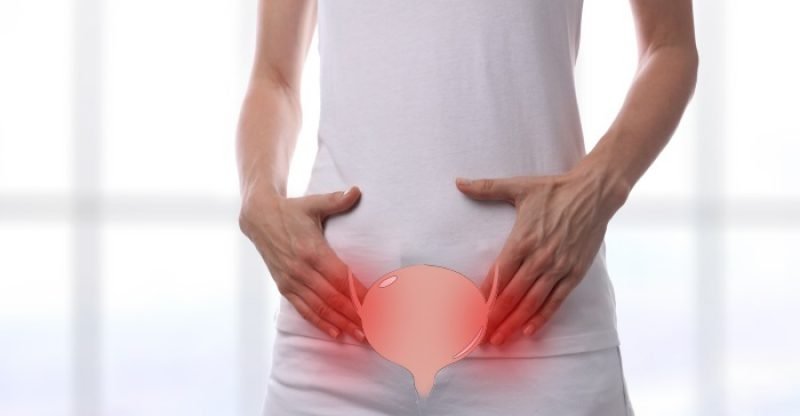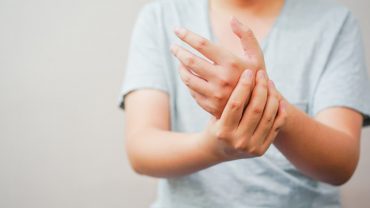15 Science-Backed Home Remedies for UTI
What is UTI?
At least half of all women will develop a urinary tract infection (UTI) at some point in their life.
UTIs account for a large percentage, nearly one in four, of diagnosed bacterial infections, and unfortunately UTIs are becoming more and more resistant to antibiotic treatment.
Learning how to treat and prevent urinary tract infections naturally can keep you healthy and decrease the risk of recurrent infections.
Our guide helps you understand the cause of UTIs, as well as all the best ways to prevent and treat them naturally at home.
While women are eight times as likely to contract a UTI as men, everyone is vulnerable to this type of infection.
Understanding your risk factors, how to manage them, and ways to improve your diet and lifestyle to prevent infection are essential for a healthy life.
We will share with you our top remedies for a UTI, including simple changes you can make to your habits that will help prevent UTIs from forming.
Understanding UTIs
An infection that affects your urinary tract, including your urethra, bladder, and kidneys, is usually caused by one type of bacteria, E. coli.
Other bacteria that can cause UTIs include Staphylococcus saprophyticus, Klebsiella pneumoniae, Enterococcus faecalis, and Proteus mirabilis.
In rare cases, other bacteria or fungi can cause a urinary tract infection, or UTI (1, 2).
When the infection impacts the upper urinary tract, it is sometimes referred to as a kidney infection.
When it affects the lower tract, it is also called a bladder infection or cystitis (3).
Bacterial from surrounding areas like the vagina or anus enter your urinary tract via the urethra, then travel up to infect the bladder and possibly kidneys.
Sometimes, your body is able to fight off these invaders without symptoms.
When your immune system cannot rid your body of these unwanted germs, though, you can develop symptoms that let you know you have a UTI.
While often just uncomfortable or inconvenient, UTIs can cause pain and impact your quality of life.
Since at least half of all women will have experienced a UTI, and UTIs are common among women between the ages of 18 and 24, it is important to know the warning signs and symptoms of a urinary tract infection.
If you have a UTI, you may experience (4):
- Burning or pain while urinating;
- Frequent need to urinate, even when little or no urine passes;
- Low-grade fever;
- Abdominal pain;
- Aches in other areas, including the lower back and pelvic region;
- Cloudy urine;
- Urine that is strong smelling;
- Fatigue or weakness;
- Red or pink urine, signaling blood;
- Confusion or delirium in older patients.
If you are healthy, a UTI will likely clear up quickly within a few days of treatment, but for some, a UTI can be a more severe problem.
Elderly patients, pregnant women, and those with immune system disorders may require more prolonged treatment with potent antibiotics to wipe out the infection completely.
Because bacteria enter through the urethra and travel up into the body, women are at higher risk for a UTI than men.
Their urethrae are shorter, so bacteria have less distance to travel, and the urethra is located very near areas that are likely to contain bacteria.
The proximity between the urethra, vagina, and anus means proper hygiene is vital to staying free of infection.
Other risk factors that can increase your likelihood of contracting a UTI include:
- Being sexually active or recently having had sex;
- Using spermicides;
- Using a diaphragm;
- Having a catheter;
- Changes in hormones, such as during pregnancy or menopause;
- Having diabetes;
- Having problems with your immune system.
UTIs can be stubborn infections, and many who have one will experience a recurrence within six months.
Your risk of recurrence rises with each infection.
Because antibiotics are often prescribed to treat a UTI, you want to be sure you are not developing antibiotic resistance.
Using natural treatments can eliminate the need for this type of medication.
And making simple changes to your habits can prevent future infections from forming (5).
Natural Treatment of UTIs
Stay Hydrated
Drinking plenty of water and other fluids will help your body flush out unwanted bacteria, and rid your system of infection quicker.
In fact, drinking too little water can contribute to the likelihood that you will develop a UTI (6).
Staying hydrated is good for you in many ways, and preventing and treating UTIs is just another important reason to drink plenty of water.
Try to drink at least two liters of water per day if you are a woman, and three liters if you are a man (7).
Probiotics are Helpful
Your body’s natural defenses against unwanted microbes include beneficial bacterial florae that prevent the overgrowth of invaders that cause infection.
These microflorae are located in your gut, vagina, and other vital areas of your body.
When you take antibiotics, your natural, healthy bacteria are destroyed, and this leaves an opening for unwanted bacteria to grow and flourish.
You can support your body’s natural, healthy bacteria by eating foods rich in probiotics or taking a probiotic supplement (8).
Fermented foods, such as sauerkraut, yogurt, kimchi, kefir, and kombucha are all good for helping promote your microflora health.
Eating these types of foods or taking a probiotic supplement with active cultures can help restore the helpful bacteria in your bladder and gut that keep unwanted microorganisms under control.
Use Good Hygiene
When women use the restroom, it is critical that you use proper hygiene to prevent the spread of bacteria that can cause an infection.
Always wipe from front to back, so that you are not spreading germs from your anus to your vagina or urethra.
Stay clean and dry as much as possible to ensure bacteria don’t have an environment in which to thrive.
When you wear tight-fitting clothing or material that does not promote air flow, you trap moisture that can support bacterial growth, as well.
Select underwear that wicks away moisture and wear loose-fitting clothing, especially if you are prone to infections.
Don’t Wait to Urinate
When you feel the need to urinate, you should go.
Drinking plenty of fluids will encourage you to urinate frequently, which is another critical step in treating and preventing UTIs.
When you hold urine for a long time in your bladder, either because you don’t stop to pee or you haven’t drunk enough water, bacteria have a longer time to grow and reproduce.
Urinating flushes those bacteria out, and also gets rid of any bacteria that may be trying to enter the urinary tract through your urethra (9).
Disrupting this natural process by waiting to urinate can be harmful to your health, so don’t wait.
Avoid Spermicides
Spermicides have been shown to increase the likelihood of developing a UTI in sexually active women (10).
These jellies and creams not only eliminate sperm cells but also kill the good bacteria found in the vagina which are normally effective at preventing the spread of germs that cause UTIs.
When you use spermicides, you are essentially eliminating your body’s natural defenses against this type of infection.
Using non-lubricated condoms promotes irritation that can also cause a UTI, so choose a lubricated condom that does not contain spermicide.
Acupuncture
Acupuncture may be able to help if you are prone to UTIs.
Acupuncture has been shown to be effective in reducing the occurrence of infection in women with recurrent UTIs.
Acupuncture helps reduce residual urine, which is waste that stays in the bladder after you use the bathroom.
As you age, the muscles in your bladder that control voiding relax, making it harder to empty your bladder completely.
This residual urine is prime breeding ground for UTIs (11).
Try Cranberries
Cranberries have been used to treat and prevent UTIs for decades.
There is evidence to suggest that some cranberry products are as effective as antibiotics for treating urinary infections, but the evidence is mixed (12).
This can be attributed to the variety of cranberry products available, and their concentrations of the most potent compounds known to treat UTIs.
Cranberry juice is a natural diuretic, which will promote frequent urination.
This can help flush out bacteria before they cause a problem.
Cranberries also contain compounds known to inhibit bacterial growth, so drinking cranberry juice or eating cranberries can be a positive preventative if you suffer from frequent or recurrent infections (13).
Eat Pineapple
Fresh pineapple contains the enzyme bromelain, which is helpful for treating UTIs.
Pineapple’s antimicrobial properties help reduce the pathogens that cause urinary tract infections (14).
Bromelain has been shown to increase the effectiveness of antibiotic treatments, which could reduce the risk of recurrence, and promote faster healing as well (15).
Use Garlic
Garlic has been used for its medicinal properties for centuries.
Freshly crushed garlic contains allicin, which has antimicrobial properties.
It has been shown to be effective against a wide variety of bacteria, including those that can cause UTIs, like E. coli
If you have frequent or recurrent UTIs, using garlic or taking garlic supplements could be helpful in reducing your risk of infection (16).
L-Arginine
The amino acid l-arginine helps your body detoxify and resist infection with its antibacterial properties.
This amino acid can help your bladder regenerate cells, which can be helpful in treating UTIs.
L-arginine can also control the growth of pathogens that cause UTIs (17).
L-arginine is available as a supplement but is also readily available in many foods.
Find l-arginine naturally in chickpeas, turkey, lentils, pork loin, soybeans, peanuts, pumpkin seeds, spirulina, chicken, and most dairy products.
Avoid Certain Foods
Some foods and drinks can make your UTI symptoms worse when you are fighting an infection.
If you have a urinary tract infection, avoid these foods until your symptoms clear.
Foods most likely to increase your discomfort include alcoholic and carbonated beverages, spicy foods, caffeine, citrus fruits, tomatoes, and vinegar.
Other foods known to increase UTI symptoms include nuts, yogurt, onions, sour cream, cheese, beer, mayonnaise, and raisins.
If you have frequent UTIs, avoiding these foods can be helpful (18).
Quercetin
The antioxidant quercetin can help your body calm bladder inflammation and reduce the symptoms of a urinary infection.
If you have a UTI, taking quercetin can help relieve the burning, pain, and urgency associated with this type of infection (19).
Foods such as berries, broccoli, and leafy greens are excellent sources of this antioxidant, and quercetin is available as a supplement.
Vitamin C
In addition to supporting your immune system in its fight against infection, Vitamin C inhibits the growth of bacteria and makes your urine more acidic.
If you are someone who suffers from frequent UTIs or is at high risk for an infection, for instance, if you are pregnant, a daily dose of 100 milligrams of Vitamin C can play a key role in helping prevent future or recurrent infections (20).
D-Mannose Powder
Certain fruits, including cranberries, contain a type of sugar that can be beneficial when treating a UTI.
This sugar, known as d-mannose, is similar to glucose but has properties that make it ideal for treating and preventing urinary infections.
D-mannose works by preventing certain types of bacteria from adhering to the walls of the bladder and kidneys.
D-mannose powder is effective at treating UTIs and preventing recurrent infections.
Pregnant women, those with diabetes, and those with immune system problems who take d-mannose powder daily see a significant reduction in infection recurrence (21).
Use Essential Oils
In addition to having anti-inflammatory properties, clove oil also fights infection from viruses, fungi, and other microbes.
Clove oil relieves pain and promotes healing.
Clove oil taken internally is usually effective at eliminating infection within two weeks (22).
Oregano oil has been used as an antibiotic treatment, as well.
Oregano oil has been shown to be effective at fighting many strains of microbes, including E. coli, the most common cause of UTIs.
That is good news if you are trying to prevent antibiotic resistance (23).
This and other oils should be mixed with a neutral carrier oil, such as coconut or olive oil, and should be used under the supervision of a doctor or nutritionist.
Always select the highest-quality essential oil, look for ones that can be used internally, and never continue their use if new or additional symptoms develop.
When Should I See a Doctor?
Research supports the use of natural remedies for treating and preventing UTIs, but it is still essential to use them in conjunction with advice from your physician.
While uncomplicated UTIs are easily healed within a few days, complicated or recurrent infections will require other types of treatment.
If your symptoms remain after three days of at-home treatment, if they are worsening despite treatment, or if you notice additional symptoms that are not related to a UTI, talk to your doctor.
If you are pregnant, have diabetes, or have recently had a catheter, see your doctor to treat a UTI, as these can be more severe infections.
Precautions
Urinary tract infections are unfortunately common, especially for women.
When bacteria or other organisms enter the urinary tract through the urethra, they can cause an infection that requires treatment.
If you are experiencing pain or burning when you urinate, you are often urinating, you have cloudy urine or muscle aches, you have a low-grade fever, or you have abdominal pain, you may have a UTI.
Women, those who are sexually active, the elderly, and those with medical problems such as diabetes and immune system problems are at higher risk of contracting a UTI and should take extra precautions to prevent them.
There are many natural treatments and preventative measures that can help take care of a UTI.
Exercising proper hygiene, especially after sex, is very helpful for women in preventing the spread of germs that cause infection.
If you do have a UTI, drinking plenty of water, eating probiotics, taking supplements, and using essential oils can all be very helpful in treating your infection.
FDA Compliance
The information on this website has not been evaluated by the Food & Drug Administration or any other medical body. We do not aim to diagnose, treat, cure or prevent any illness or disease. Information is shared for educational purposes only. You must consult your doctor before acting on any content on this website, especially if you are pregnant, nursing, taking medication, or have a medical condition.
HOW WOULD YOU RATE THIS ARTICLE?





